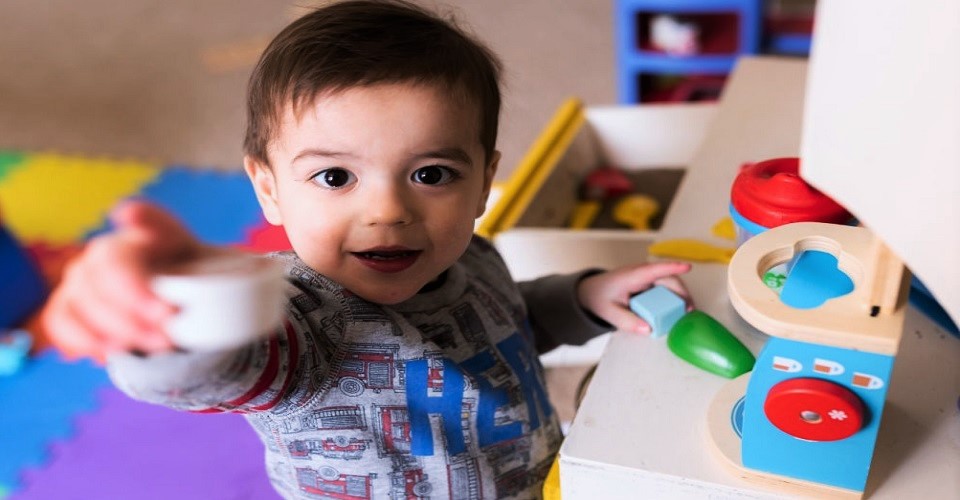Child Motivation Strategies and Their Impact on Future Early Childhood Educators
26th February 2020

Most good students aren't born good learners. Individual personality plays a big part in a child's willingness to learn and their overall disposition when it comes to schooling and education. More importantly, any student, who possesses the basic aptitude and receives the right motivation, can become a good learner. While the classroom will likely be the primary source of instruction, intellectual, social and academic growth should also be catered to by the early childhood educator if he/she wants to really enhance a child's desire and ability to learn. In the following lines, we will have a look at certain methods that can be put to use by an early childhood educator, which he/she needs to inculcate while pursuing an online Early Childhood Care and Education course.
1. Develop the habit of reading
It goes without saying that reading is the key to success in life, both for the students as well as the educator. Children who develop a love of reading, develop a love for learning too. So, it is important for the learner of an online Early Childhood Care and Education course, who is expected to start his/her career as an Early Childhood educator, to inculcate this trait in order to implement it in the class to motivate the young learners. Reading not only helps children develop a richer vocabulary, it helps their brain learn how to process concepts and formal communication. The skills gained from reading extend far beyond increased performance in language art classes. Students who read well experience an enhanced ability to learn in all subjects.
2. Provide options
It's important for an early childhood educator to guide children through the learning process, but it's just as important to allow children to have control of their own learning experience. Whether at home, or in the classroom, it is important for the learner of an Online Early Childhood Care and Education course to provide children the ability to have direct input into their learning choices when he/she starts a teaching job. A good way to do this is to provide children options.
3. Open and sincere communication
An early childhood educator can look to create an open atmosphere where the young learner feels comfortable while expressing his/her likes, dislikes or concerns. When the student shares his/her opinion, the educator should make sure to validate his feelings. When children feel like their opinion doesn't matter, or they're stuck, they're likely to disengage from the learning process. Good learners know their opinion matters and feel reassured that they can be open about their educational experience without being judged, put down, discouraged or ignored. So it is important for a future educator to learn the ways of motivating the students when he/she starts his educational venture.
4. Focus on the student’s interests
When learning engages children in areas and subjects of interest, learning becomes fun and children engage in learning. If the teacher really wants to help the students under his/her tutelage to become able learners, he/she should encourage them to explore topics and subjects that fascinate him. This helps in the motivation of the young learners to complete the course within the scheduled timeframe.
5. Introduction of different learning styles
Every child has learning preferences and styles that are best suited to their way of learning. Some children have a dominant learning style, while others prefer to learn using a mix of learning styles. There isn't necessarily one right or wrong learning style, or mix of learning styles. However, to help the young learner discover his/her preferred learning styles, an early childhood educator can use techniques that will improve his rate and quality learning. He/she should learn about these techniques and how to use them effectively while pursuing the online early childhood care and education course.
6. Focussing on strengths
Focusing on strengths can be difficult when a young learner struggles academically. Notwithstanding, focusing on his/her strengths is vital to healthy emotional and academic development and progress. Focusing on the strengths of the children is another form of positive reinforcement that will motivate him to keep learning. Conversely, focusing on the child's weaknesses does nothing but cause discouragement, distress and a lack of desire to learn. So, it remains one of the major responsibilities for a future early childhood educator to ensure that the young learners feel motivated.
The aforementioned points clearly indicate towards the fact that it is hard for the children to become able learners without the right guidance from their teacher. Similarly, if an early childhood educator is unable to inculcate the techniques or methods to motivate the students under his/her tutelage, then it becomes really problematic for both the teacher and the students to attain the successful completion of the course within the stipulated time. So it becomes really important for the learner of an online early childhood care and education course, who is expected to become an educator in the future, to inculcate the above techniques, which will help him/her to motivate the young learners in the right manner and develop the overall teaching-learning procedure in a profound manner as well.
